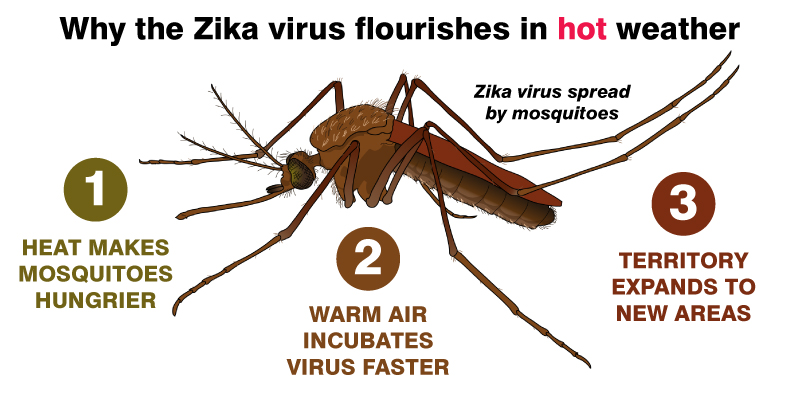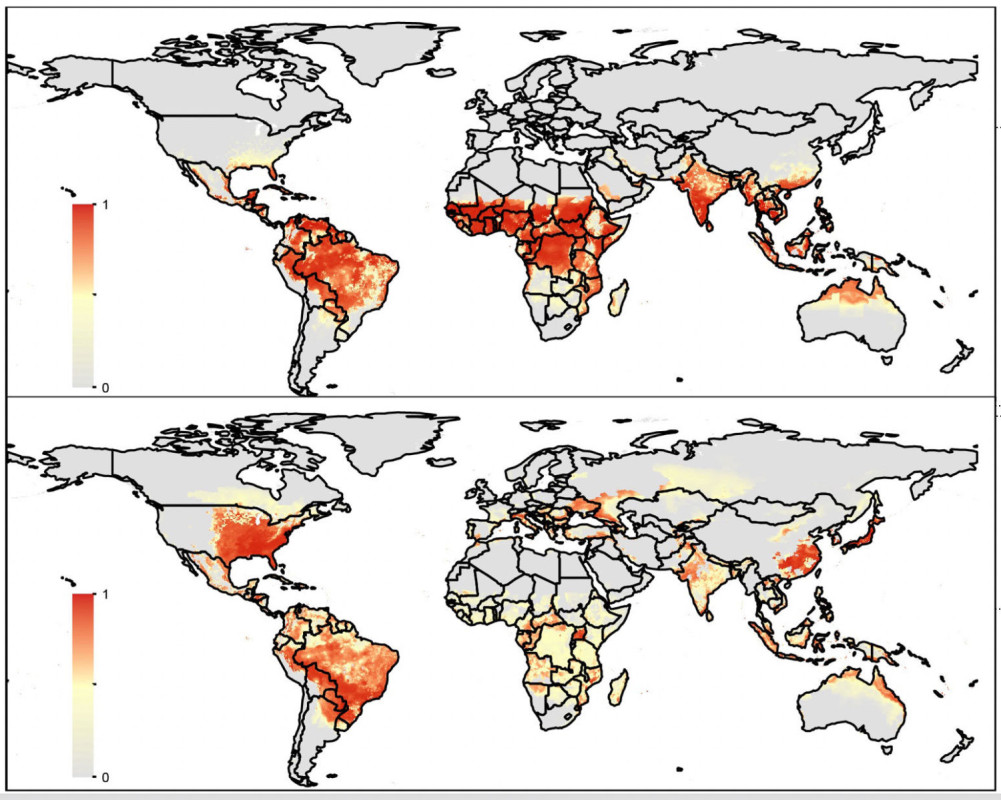 Global warming is known to cause rising sea levels, extreme weather patterns, and other environmental issues. But did you know that it is also causing mosquitoes to move to new territories?
Global warming is known to cause rising sea levels, extreme weather patterns, and other environmental issues. But did you know that it is also causing mosquitoes to move to new territories?
The invasion of natural habitats by migrating species like mosquitoes is suspected to be causing an increase in diseases. Let’s dig a little deeper to learn more about the big issues with these little pests!
Changing Climate, Changing Habitats
Mosquitoes can be found almost anywhere. They thrive best in tropical and subtropical climates near the equator with lots of warmth, rain, and humidity. Breeding rates of mosquitoes are observed to be directly proportional to warmer temperatures - the warmer the climate, the more successfully they breed.
 Since the Industrial Revolution, global temperatures have increased by an average of 1℃. This has caused mosquitoes to expand their range beyond the equator by 4.7 kilometers (2.9 mi), and reach areas that are 6.5 meters (21.3 ft) higher in altitude each year.
Since the Industrial Revolution, global temperatures have increased by an average of 1℃. This has caused mosquitoes to expand their range beyond the equator by 4.7 kilometers (2.9 mi), and reach areas that are 6.5 meters (21.3 ft) higher in altitude each year.
A species entering a new area can throw a once-balanced ecosystem into disarray through the introduction of new pathogens to the local population. This can have unforeseen consequences for the natives.
Impacts of Mosquitoes
The spread of mosquitoes in particular can have deadly repercussions because they carry several diseases like malaria, dengue, and Rift Valley Fever.
 Not only can it affect and kill humans, but local wildlife may also suffer as mosquitoes bite and infect them too. For example, the range of mosquitoes carrying avian malaria has spread in Hawaii.
Not only can it affect and kill humans, but local wildlife may also suffer as mosquitoes bite and infect them too. For example, the range of mosquitoes carrying avian malaria has spread in Hawaii.
The exotic forest birds previously embraced the safety of higher altitudes to avoid mosquitoes, but with rising temperatures, these areas may not be safe for much longer. Malaria has been known to cause entire bird species to go extinct, so this situation is of major concern.
Malaria cases have spiked in areas where no reports were made before. The rapid spread of mosquitoes and other critters can mean that even areas far from the equator need to prepare for scenarios in which diseases like malaria find their way into the populace.
There is Still Time
Although there is no definitive evidence that climate change is causing the expansion of animal ranges, the correlation is too much to ignore.
Fortunately, experts are researching ways to limit the dangers of disease transmission in vulnerable populations; estimates say that as many as 78,000 lives/year may be saved by making new therapies available, and providing mosquito nets and bug sprays.
Resource managers can work to control bird predators, and to improve and restore their habitats to increase the odds of their survival. There is hope that if used wisely, time will allow for preparations to be made before mosquitoes spread further. For more info on traveling diseases and pests, see this article here.
Sources: CDC, MSN, USGS, UN








